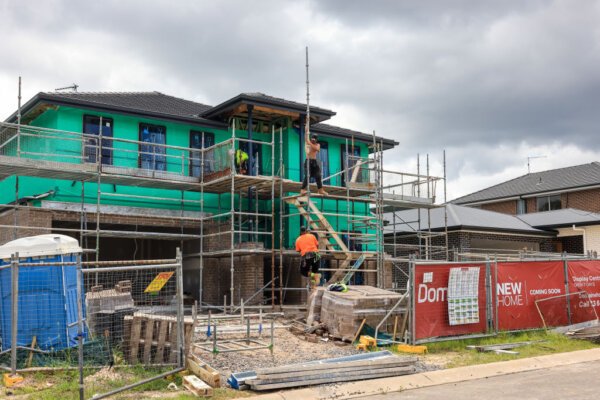Australia Sees Housing Approvals Plummet to Lowest Level in Over a Decade
Master Builders Australia reported that 163,100 new homes were approved across Australia in the year leading up to February 2024, marking the lowest rate in 11 years.
Australia’s housing approvals have dropped to an 11-year low amidst increasing demand, putting pressure on the housing market.
New data from the Australian Bureau of Statistics (ABS) indicated a 1.9 percent decrease in dwelling approvals in February 2024, following a 1 percent decline in January and a significant 9.5 percent drop in December 2023.
This decline was primarily driven by a notable decrease in private sector dwellings.
“Approvals for private houses, however, saw a 10.7 percent increase in February.”
Master Builders Australia, a leading industry organization, expressed concerns that the low housing approval rate could hinder the government’s housing target.
“This contrasts sharply with the annual target of 240,000 new homes under the National Housing Accord.
“To achieve this level of housing output, approvals would need to rise by 48 percent from current levels.”
Master Builders Australia CEO Denita Wawn echoed Mr. Garrett’s worries, stating a mismatch between the homes in the pipeline and the growing housing demand.
The CEO emphasized the need for policymakers to unlock housing supply through targeted actions.
“We must ensure adequate support is provided to promote investment in housing development, steering clear of changes that could dampen the investment environment.”
What Causes Low Housing Approvals?
Peter Tulip, the chief economist at the Centre for Independent Studies, attributed the low housing approval rate to high interest rates and increasing input costs.
These factors have led to developers’ equity reduction and lenders retracting finance, causing delays or cancellations in development projects.
“In hindsight, developers paid too much for their land,” Mr. Tulip told The Epoch Times.
“Many developments are now postponed until developers can rebuild their equity or sell the land (at a loss) to better-capitalized competitors.”
The Reserve Bank of Australia currently maintains the official cash rate at 4.35 percent, a 12-year high, following an aggressive monetary tightening cycle starting in May 2022.
According to Mr. Tulip, the most effective way to boost housing approvals is for state governments to override local council objections and mandate councils to approve more buildings.
“There are numerous potential building sites that do not require additional zoning permission, but many others do require it,” he added.
“The recent Transport Oriented Development proposals by the New South Wales government are a good model for what is needed. This policy should be replicated in other states.”



